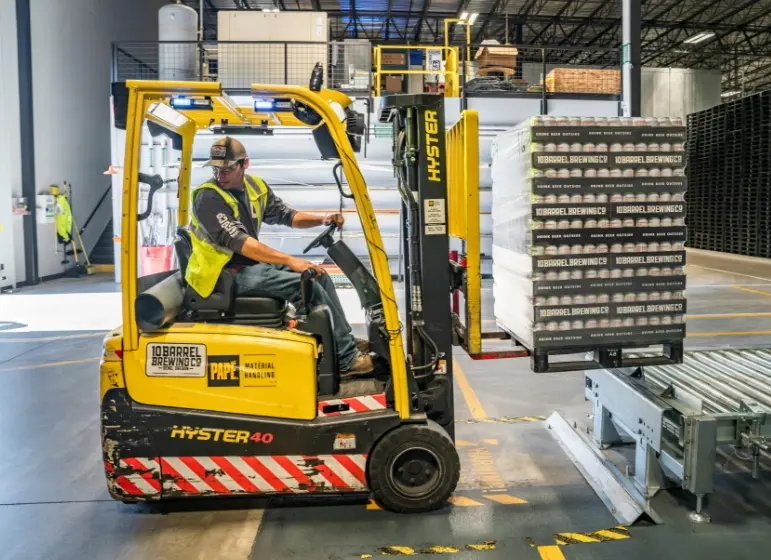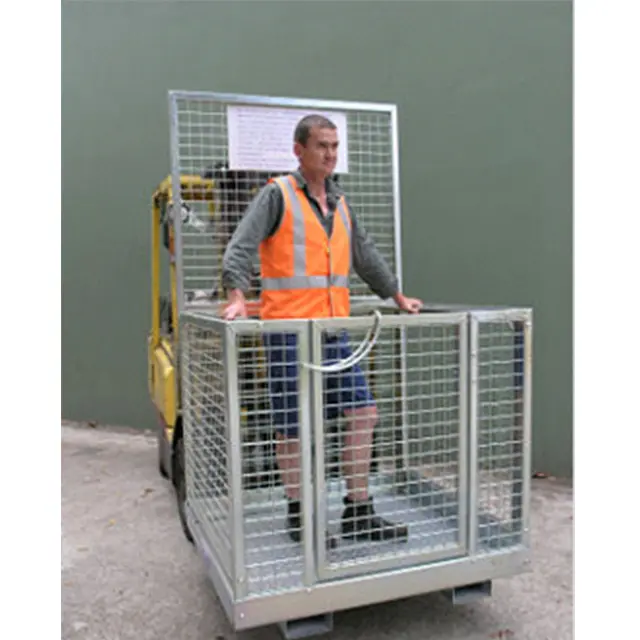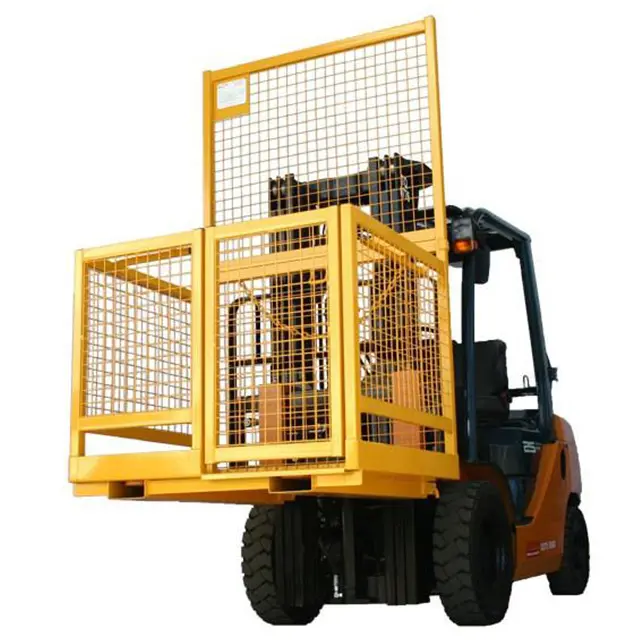
When it comes to safely lifting staff for elevated tasks, choosing the right forklift work platform NSW businesses can trust is critical. Selecting the wrong equipment risks fines, accidents, and lost productivity. A compliant work platform not only keeps your team safe but also ensures you meet Australian safety standards—protecting both your workforce and your reputation. This guide walks you through what to look for, the regulations you need to know, and practical tips for buying and maintaining your platform.
Why Compliance Matters for Forklift Work Platforms
Work health and safety inspectors are increasingly vigilant about businesses using forklift elevated work platforms incorrectly or without proper certification. Non-compliance can lead to costly penalties and even workplace injury claims. In NSW, SafeWork requires businesses to use platforms that meet AS 2359.1 (forklift trucks) and AS 2359.6 (safety cages). Using a forklift cage work platform that isn’t compliant could invalidate your insurance and put your team at risk.
A compliant work platform ensures:
- Correct weight ratings and load capacities.
- Secure guard rails and toe boards.
- Safe entry and exit points.
- Proper anchoring to your forklift.
Meets or exceeds Australian Standards and local regulations.
Understanding Different Types of Forklift Work Platforms
1. Forklift Cage Work Platforms
A forklift cage is a secure, enclosed platform that attaches to your forklift’s tynes. These are ideal for short-duration tasks like stocktaking, light maintenance, or accessing hard-to-reach shelves. Look for cages with spring-loaded self-closing gates and high-quality welds for maximum durability.
2. Forklift Elevated Work Platforms
These are larger and often more robust platforms designed for tasks requiring more mobility or time at height. They’re suited to longer maintenance jobs or construction tasks where stability is crucial.
3. Custom Forklift Work Platforms
Some NSW businesses have unique warehouse or yard configurations. In these cases, suppliers like All Handling Solutions can provide custom sizes or galvanised finishes for outdoor use.
Safety Standards in NSW
In NSW, SafeWork’s guidelines require that forklift work platforms:
- Be used only for occasional, short-term tasks—never as a substitute for a purpose-built elevating work platform (EWP).
- Be securely attached to the forklift using safety chains or manufacturer-approved fittings.
- Include handrails, toe boards, and non-slip flooring.
- Be used only with forklifts rated to safely handle the platform’s load.
- Be operated by trained, licensed personnel.
Before purchasing, always check the manufacturer’s documentation to confirm compliance with Australian Standards and local rules.
Key Features to Look For When Buying
- Load Capacity: Ensure the platform is rated for the maximum combined weight of workers, tools, and materials.
- Construction Quality: Galvanised steel offers superior rust resistance for outdoor use, while powder-coated finishes are excellent for indoor environments.
- Safety Gates & Rails: Spring-loaded gates, high rails, and toe boards are essential for preventing falls.
- Attachment Mechanisms: Look for safety chains or locking pins that prevent accidental detachment.
- Size and Access: Choose a platform size that fits your forklift’s capabilities and your workspace dimensions.
Common Mistakes to Avoid
- Using Non-Compliant Equipment: Cheaper, uncertified imports may fail inspections and put workers at risk.
- Overloading: Never exceed the forklift’s capacity, even if the platform seems stable.
- Ignoring Maintenance: A neglected platform may develop rust or weak points, leading to accidents.
- Skipping Training: Operators and workers should always be trained in proper use.
Maintenance and Care Tips
- Inspect Before Each Use: Check welds, rails, and the floor for damage.
- Regular Cleaning: Keep surfaces free of oil or debris to prevent slips.
- Annual Professional Check: Have your platforms inspected by a qualified technician.
- Store Properly: When not in use, store your platform indoors or under cover to prevent corrosion.
NSW-Specific Considerations
Because workplace safety enforcement in NSW is strict, having the correct documentation is as important as having the right platform. Keep a copy of your platform’s compliance certificates and training records handy. Some insurance providers may request proof of compliance during audits or claims.
Choosing the Right Supplier
Work with an experienced supplier that understands local regulations and can provide documentation. All Handling Solutions, based in Wilberforce, NSW, is trusted by businesses across Sydney for quality handling equipment. They stock a range of forklift cage work platforms and forklift elevated work platforms that meet Australian Standards. Local suppliers also provide better support, faster delivery, and knowledgeable advice compared to overseas vendors.
Investing in the right forklift work platforms is more than a compliance exercise—it’s about safeguarding your team and maintaining efficient operations. Don’t risk fines or accidents by cutting corners on safety.
Contact All Handling Solutions today for expert advice on selecting a compliant work platform that fits your needs. Whether you need a forklift cage work platform for quick warehouse tasks or forklift elevated work platforms for more demanding jobs, their NSW-based team can provide the right solution—delivered fast and backed by reliable local support.

